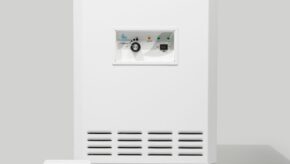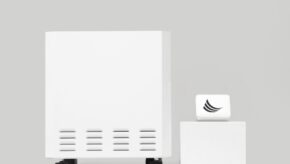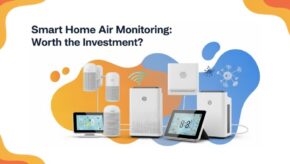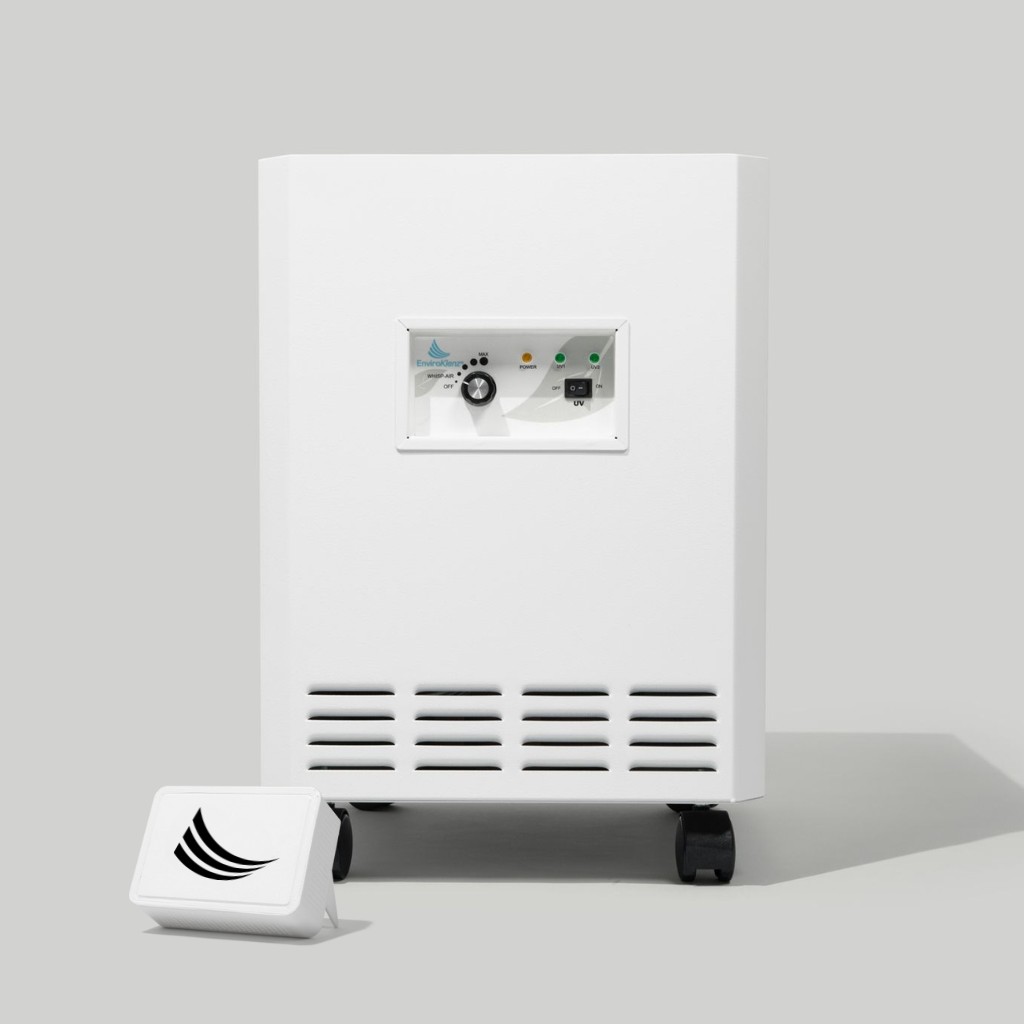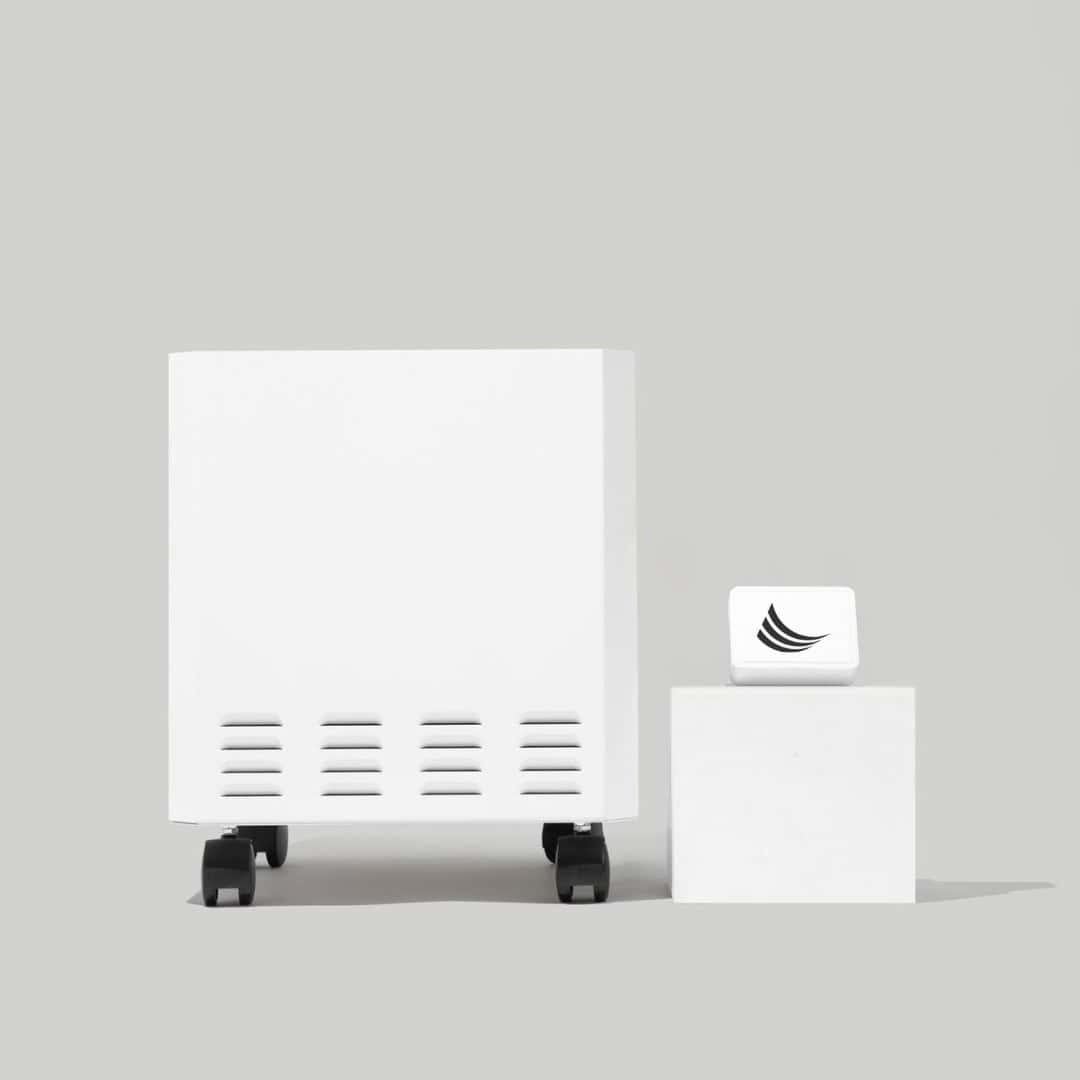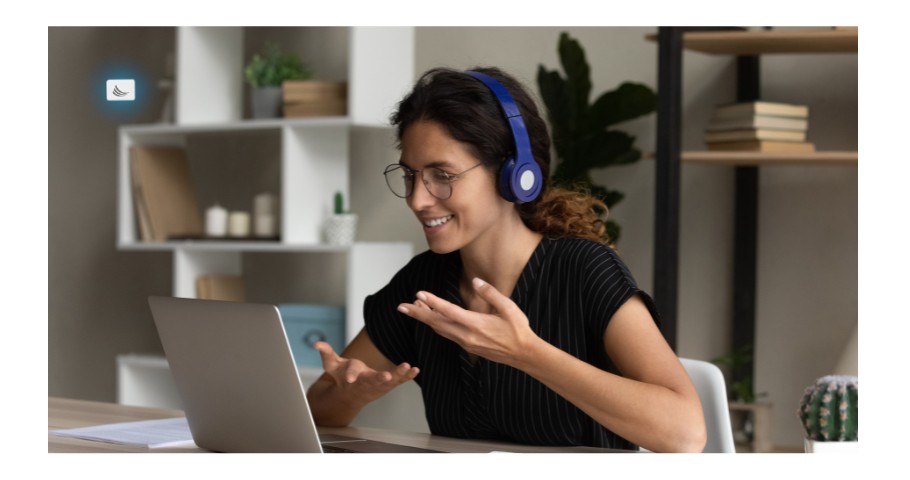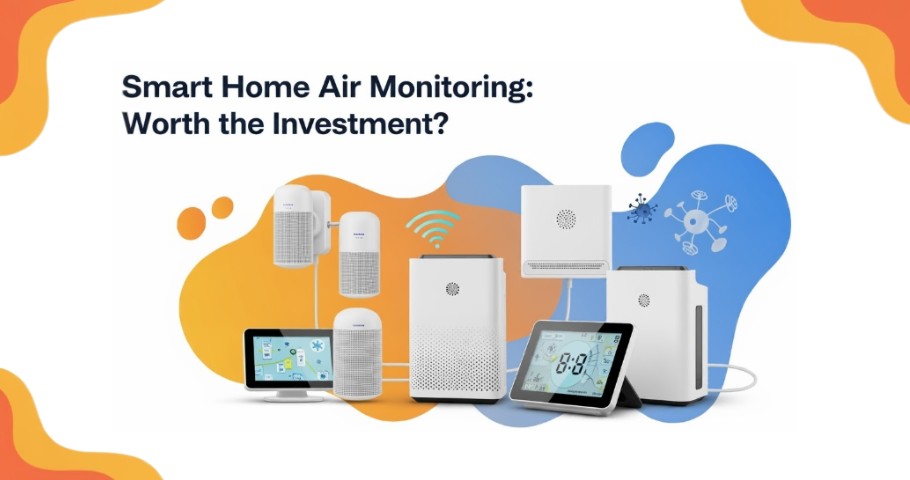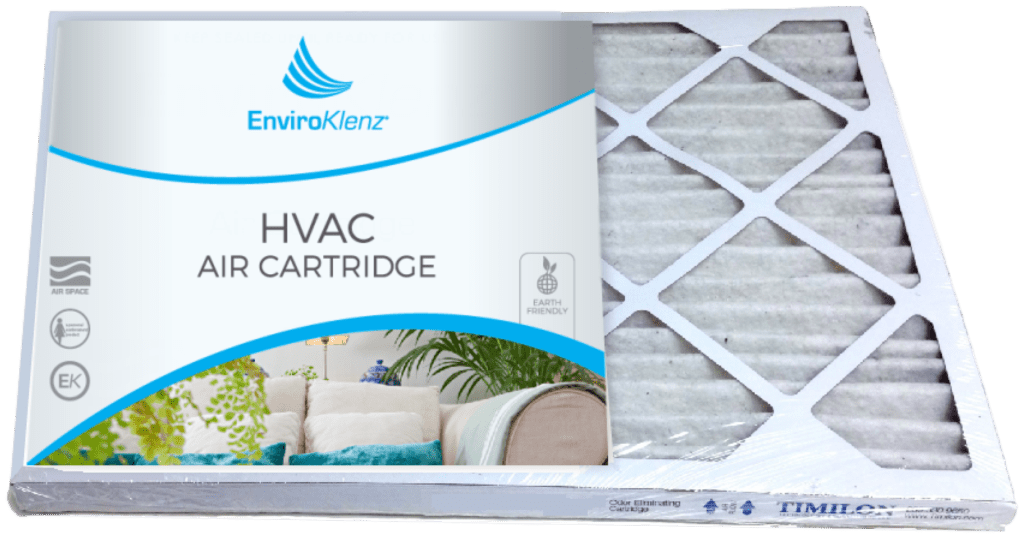The regular cleaning of your home is something that most homeowners will perform every couple week inside of this indoor space, and this can include cleaning the surfaces, vacuuming, mopping, and general dusting of the environment. The cleanliness of your home can have a significant impact on several various components of this indoor space including the indoor air quality, the health of the occupants, and even the proper functioning of your home’s air handling system (HVAC system). The air handling system inside of a home is critical to the movement of air flow and the mitigation of certain airborne pollutants that can be present in the air space of this environment.
Unfortunately, the harsh truth about home air filters and the maintenance that these filters require is that in most households these filters are not switched out as frequently as they need to be for both your home’s air quality and for the functioning of the air handling system. The repercussions of infrequent maintenance of your home’s air filter can have lasting consequences, and as we learn more about these consequences more homeowners will become regimented on changing out their air filters inside their air handling system in the future.
In this article we are going to learn more about the dirty truth behind air filters & improper maintenance, understand how these air filters work, and determine the best optimal home air filter to use inside the indoor space of your home.
What Does an Air Filter Do
The essential component to any air handling device, furnace, or heat pump is the necessary air filter that is housed within these air systems inside of a home. These air filters, although important have tend to become a forgotten item in the home when it comes to general maintenance and cleanings – and this can present many issues within the home that will start with issues inside the air handling system (like damage or more energy use) and can eventually lead to ramifications that will taint the indoor air quality within your home’s air. These air filters can come in a variety of sizes, materials, and house different capabilities when it comes to filtering the indoor air of pollutants.
Air filters used in the home are designed to remove different size and types of particulates from the air before the air flows through the blower and flows throughout into the air of your home. Not only do these filters works to remove dust allergens, pet dander, and other contaminants, but they are also usually able to filter out fine dirt particles from the air that can accumulate within the air handling system and overtime negatively affect the performance of the HVAC system.
How Do Air Filters Work
Recently, we have talked a lot about medical face masks and how they work when protecting a person’s health in certain environments. These face masks work by acting as a protective barrier to remove particles from the air that can cause harm to people or critical equipment in medical facilities. In comparison, the function of how medical face masks work is similar to how air filters work inside your home. Air filters work by cleaning the air that is passing through the filter media, which will allow for the capturing and removal of particles in the air such as dust, hair, pet fur, and dirt. Each air filter will be constructed of different fiber material that is used to help capture and trap pollutants into, such as spun fiberglass, pleated paper, or cloth enclosed in a cardboard frame – all of which will work in different ways and provide certain levels of pollutant protection in the air. Ultimately, the basic function of how air filters work is to simply clean the air that circulates throughout the air in your home, that will pass through the heating and cooling system (HVAC system).
As the air filter is used more and more it will start to accumulate and collect trapped particles within the filter media of the air filter, and the more particulate matter that get trapped the harder it will be for airflow to be pushed through the filter media – therefore restricting air flow into your home. This restriction of air flow into the home due to a dirty HVAC air filter highlights the important of regular maintenance and changing of the air filter within the air handling system of your home.
When to Change Air Filter
One of the most important things that any homeowner can do to maintenance and protect their air handling system or HVAC system is to simply change out your air filter on a regular basis. Having a clean air filter installed into your home’s air handling system will help to keep everything working properly and will even have a cost-effective impact on your energy bills. However, as we have discussed throughout this article, many homeowners will often forget to change out their air filter, which can lead to major problems down the line with their air handling system and even their indoor air quality. When it comes to changing out your home’s air filter, how often should you change this air filter out and will the life of an air filter depend on the type of air filter you use in your air handling system?
According to US Home Filter, it is generally recommended that you change out your home’s air filter in your home every 30 days when you are using a less expensive fiberglass filter. Whereas when you are using a higher-grade pleated air filter or other types of quality air filters, the lifespan of this filter can last anywhere from 3 months to up to 6 months. However, it is best that you follow the recommendation provided by the manufacturer of your home’s air filter to try to avoid problems overtime such as damage to your air handling system, high energy bills, restricted air flow, and an accumulation of dirty air in your home’s indoor air quality.
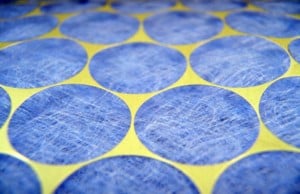
1. Spun Fiberglass Filters:
The type of filter that is the cheapest option for your home’s air handling system, these disposable filters usually contain a MERV rating of 1 to 4. This air filer will filter out large particles to protect your air system and provide maximum airflow into the environment. This type of filter is recommended if you are renting an apartment or home, and you do not suffer from allergy problems.
2. Disposable Pleated Paper or Polyester Filters:
A higher-grade more expensive air filter than spun fiberglass filters, these disposable pleated or polyester filers will usually contain a MERV rating of 5 to 8. These air filters will ultimately do a better job of filtering, trapping 80 to 95 percent of the particles 5 microns and larger.
3. Electrostatic Filters:
These self-charging fibers work by attracting particulates out of the air, and these filters can last up to 8 years if they are good quality. These disposable and reusable option filters will usually contain anywhere from a 2 to 10 MERV rating.
4. Disposable Pleated High MERV Filters:
One of the higher quality HVAC air filters for a home, the disposable pleated high MERV filters will work to filter and trap smaller particles like bacteria and some viruses. These filters will usually contain about an 11 to 13 MERV rating and will last anywhere from 6 months to a year.
What Happens if You Don’t Change Your Air Filter?
The consequences of not changing your home’s air filter (HVAC filter) can be quite significant, especially in homes where there are a high number of occupants and pets within the indoor environment. Basically, when air filters are not properly maintained and changed out it will result in a clogging in the air handling system that will consist of particles and contaminants that stick to the filter and that can start to buildup in the actual air handling system. Improper air filter maintenance in your home will lead to higher energy bills, poor temperature regulation, health concerns due to the compromising of the indoor air quality, furnace failures, clamped up coils, etc. As we discussed previously, two of the most important impacts of improper air filter changing includes damage to the air handling system and even indoor air quality issues because of unfiltered air pollutants present in the air of this indoor space.
The most effective ways to improve your indoor air inside your home is to reduce or remove pollutants from the air through air quality solutions such as air filters and air cleaners. According to the EPA, indoor levels of pollutants can be two to five times – and occasionally more than 100 times- higher than outdoor levels, therefore indoor air quality has become a major concern for most Americans. Thus, if you do not change out your HVAC air filter in your home regularly you will ultimately be contributing to air pollution in your home’s air space.
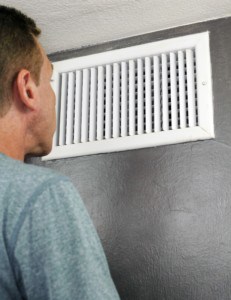
Benefits of Changing Air Filter in Home
Many people may wonder what exactly are the benefits of having and changing out an air filter in your home’s air handling system and the answer to this is that there are many benefits. Firstly, a clean air filter will help to extend the life of your HVAC system, which is responsible for heating and cooling the indoor air of your home. When air pollutants are not trapped in the filter media of an air filter they will accumulate and collect in the air handling system which will lead to overheating, coil clamp ups, and even restriction of air flow that will lead to damage to the air handling system. Secondly, an air filter will help to keep energy cost down inside of your home, because as the air handling system begins to work harder due to pollutant buildup in the system. When the air handling system works harder it will use more energy which will drive up your energy bill drastically. Lastly, it will help you maintain a healthy air quality within your indoor air space, as we have discussed previously.
Best Home Air Filter to Use for Chemical and Odor Neutralization
When it comes to the best air filter for home hvac to use in your personal indoor space, it is important to have an air filter that is capable of removing hazardous pollutants from the air, as well as other pollutant matter like dust, pet dander, and dirt that can adversely affect your air handling system and air quality indoors. The majority of air handling systems and corresponding filters only focus on particle filtration through the use of pleated air filters; however, these do not address chemical pollutants and odors. To combat this drawback found in traditional air filters, the EnviroKlenz HVAC Air Cartridge Filter not only does the job of traditional pleated air filters by capturing hair, pollens, dust, dander, spores, and other common airborne particulates, but the advanced chemical neutralization capabilities of the EnviroKlenz patented materials which gives the filter the added capability to capture and/or neutralize chemical pollutants.
The EnviroKlenz technology is a highly effective “destructive absorbent” material for chemical containment and neutralization making them not only competitively advantageous, but very attractive to multiple chemical sensitive situations where the chemical triggers can come from many different sources. When the EnviroKlenz materials in the EnviroKlenz HVAC come into contact with chemical pollutants, the active sites first capture the chemical then they will initiate the neutralization process. This type of action is needed for the numerous types of odorous chemicals that possess a variety of different functional groups. The EnviroKlenz HVAC Air Cartridge Filter can be deployed into any existing air handling system to effectively capture and reduce airborne particulate and chemical pollutants in a single product solution, making for a great home air filter for your personal indoor environment.
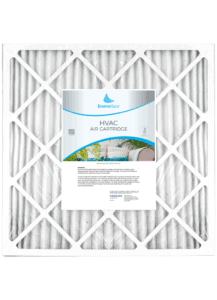
Article Sources:
